IN THE THIRD JUDICIAL CIRCUIT OF FLORIDA
Administrative Order No.
2007-004
IN RE:FAMILY MEDIATION
WHEREAS, the Third Judicial Circuit recognizes that mediation is a process whereby a neutral third party acts to encourage and facilitate the resolution of a dispute through an informal and non-adversarial process with the objective of helping the disputing parties reach a mutually acceptable and voluntary agreement; and
WHEREAS, mediation can result in cost and time efficiencies to the parties and the Court, It is therefore
ORDERED as follows:
- The Third Judicial Circuit shall have a circuit-wide Family Mediation Program which will include mediation in disputed family matters and issues, juvenile dependency, domestic violence (limited mediation in appropriate cases), child support cases, and children and families in need of services cases.
- All court family mediation programs shall be administered and coordinated by the Mediation Coordinator at the direction of the Chief Judge and the Court Administrator.
REFERRAL TO MEDIATION
3. For purposes of this order, the term “family matters and issues” means issues in domestic proceedings including, but not limited to, the following areas of dispute: pre-and post-dissolution of marriage, debt and property equitable distribution, alimony, paternity, parental responsibility, child support, residence of child(ren), and parental access issues involving emotional or financial considerations not usually present in other circuit civil cases.
4. In any filed cases that involve family matters or issues, and upon a finding of dispute by a court, whether a final hearing for a family law case, a modification of a family law decree between unmarried parents on family issues, the parties must participate in a mediation conference, unless otherwise exempt by statute, rule or court order. Parties or the court shall schedule family mediation at an early stage of the proceedings. No final hearing will be set in contested cases until the court has received a report from the mediator that includes the outcome of the mediation including the attendance or non-attendance of the parties. All mediation reports involving pro se parties shall be sent to the case manager for review of the file and to schedule a final hearing if necessary.
5. Pursuant to Chapter 44, Florida Statutes, and Florida Family Law Rules of Procedure 12.740 and 12.741, the Court, on its own motion, may refer all or any part of a civil case to mediation for the purpose of mediating family matters.
FEES, FUNDING, AND ELIGIBILITY FOR FAMILY MEDIATION
6. Funding of the Third Judicial Circuit Court Family Mediation Program shall be from state general revenues as appropriated by the Legislature, trust fund or cost recovery of mediation user fees, and by any other available sources such as grants or county revenues.
7. User fees pursuant to section 44.108, Florida Statutes, are established herein and shall be collected by the Clerk of the Court. The Clerk of the Court shall provide an accounting of all collections to the Court Administrator on a monthly basis. Upon request for mediation or by court order to mediation, each party shall provide to the Clerk of the Court a current financial affidavit and most current pay stub available, or a letter from an employer stating current earnings or the most recent 1040 form filed with the IRS.
8. When the combined gross income of the parties is less than $100,000, the parties shall be eligible to use the court Family Mediation Program. Parties are presumed to have the ability to hire a private mediator when the combined gross income of the parties is $100,000 or greater, unless the court finds that there are extraordinary circumstances which make the parties unable to afford a private mediation.
9. Parties with a combined gross income of less than $50,000 shall each pay a mediation fee of $40.00 and parties with a combined gross income of more than $50,000 but less than $100,000 shall each pay a mediation fee of $80.00 unless the court finds that there are extraordinary circumstances which make one or both parties unable to afford the fee. One dollar of the mediation fee will be retained by the Clerk of the Court as a processing fee and the remainder of the fee goes to the Mediation and Arbitration Trust fund.
10. Parties for Family Mediation must pay for mediation services prior to the start of the mediation. Parties to Dependency Mediation will not be charged a fee. Upon payment for the mediation fee, the parties shall present to the mediator a receipt from the Clerk of the Court documenting payment. In the event a party is unable to pay the fee prior to the start of the mediation conference, the party may sign a waiver and promissory note with the Clerk of the Court agreeing to pay the fee within 30 days. If a party does not appear at a mediation conference after having been properly noticed they will be charged an additional fee equal to one hour of the mediator’s charges. The mediation conference will be rescheduled after all fees are paid in full, unless otherwise ordered by the Court.
CONTRACT MEDIATORS
11. When contract mediators are utilized they shall be compensated as authorized by their Professional Standards contract. Contract mediators shall be scheduled only after the Mediation Coordinator has determined that there is sufficient revenue to meet the contract obligations.
PRIVATE MEDIATORS
12. Parties who are not eligible for Family Mediation Program services, or those who mutually agree to choose not to use the Family Mediation Program services, may utilize a private mediator or private mediation service. Compensation of private mediators shall be paid by the parties as they agree in writing, or as otherwise ordered by the court.
JUVENILE DEPENDENCY MEDIATION
13. A Juvenile Dependency Mediation Program shall be established circuit-wide.
14. Pursuant to Chapter 39. Florida Statutes, and Florida Family Law Rules of Procedure Rule 8.290, the Court on its own motion my refer all or any part of a dependency case to mediation for the purpose of mediating issues related to dependency matters. Unless otherwise agreed to by the parties or ordered by the court, any party or participant ordered to mediation shall be physically present at the mediation conference. Persons representing an agency, department or program must have full authority to enter into an agreement that shall be binding on that agency, department or program. In the discretion of the mediator, and with the agreement of the attending parties, dependency mediation may proceed in the absence of any party or participant ordered to mediation.
GENERAL PROVISIONS
15. Willful refusal to schedule or failure to appear at a scheduled mediation, without good cause, shall place the offending party in jeopardy of sanctions by the court, including contempt of court, assessment of mediator and attorney fees and other costs, the striking of pleadings or portions thereof, and/or other appropriate sanctions.
16. Except as otherwise provided b sections 44.401-44.406 Florida Statutes, verbal or written communications made during a mediation session or proceeding, other than an executed settlement agreement shall be confidential and inadmissible in subsequent legal proceedings. Confidentiality shall be strictly maintained in accordance with the law.
17. This Administrative Order replaces Administrative Order No. 2004-016, dated June 30, 2004.
ORDERED this 11th day of January, 2007.
/Signed/_______________________________________

